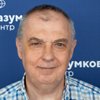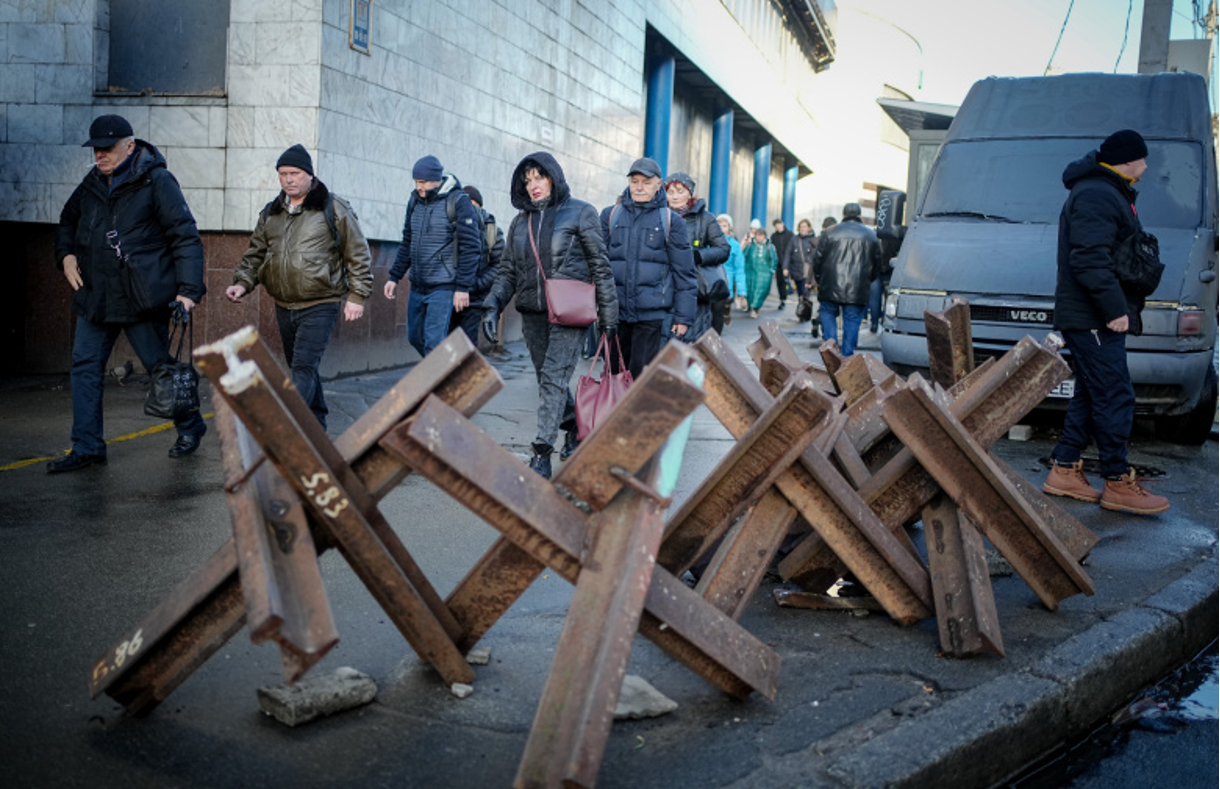
How has the Ukrainian society changed recently?
Interview with sociologist Mykhailo Myshchenko
Military and political propaganda greatly distorts reality. Russian society now has many false perceptions of what is happening in Ukrainian society. These perceptions are often formed not only by the state TV but also by the opposition. We talked with Ukrainian sociologist Mykhailo Myshchenko about the real political sentiments among Ukrainians, how they have changed over the past few years, and how they in Ukraine treat Russians, Putin, May 9, and the Russian language. All answers are based on the data of public opinion polls held in Ukraine in 1998–2023.
"Russia is seen as a bearer of authoritarian principles, Ukraine — as a defender of democratic values"
— The data of the January public opinion poll showed that the absolute majority of Ukrainians has an interest in politics. 60.5% is interested in politics, 29.9% is highly interested. Can you tell us how the involvement of Ukrainians in politics has changed in recent years?
— We have data of the Kyiv International Institute of Sociology, and of our think tank — Razumkov Centre. According to them, in 2011–2020, the interest in politics was not very strong in Ukrainian society. About a third of citizens answered that they had no interest in politics at all or largely. In that period, 62–67% answered that they were either not very interested in politics or not interested at all.
According to the results of a poll conducted by us in September-October 2022, the interest in politics has grown significantly. Last fall, 56% of respondents answered that they were interested in politics. 43% — not interested. For comparison: these indicators are close to those obtained during the implementation of the World Values Survey international research project in the Netherlands. In that country, 54% of respondents are interested in politics. But this indicator is significantly lower, compared to Germany, where 79% are interested in politics.
A higher level of interest in politics is observed in the western and central regions of Ukraine: 60%, in the south, it is lower — 48%, in the east — 47%. Compared to 2017, it grew in all regions.
The highest level of interest in politics is observed among older people of 60 years and more — 60%, while in the age of 18 to 29 — 49%. Nevertheless, since 2017, interest in politics in the younger age group has grown more than in older age groups: among those in the age of 18 to 29 — by 25%, among those of 60 years and more — by only 10%.
Respondents were also asked to estimate how much they can influence the authorities’ actions. Compared to 2020, the number of those who believe that the existing political system in the country allows people like them to influence the actions of the government has increased. If in 2020 they made 35%, now, it is 44%. And the share of those who believe that the political system does not allow them to influence the actions of the government decreased from 34 to 26.5%.
—Which institutes of political power enjoy the highest trust, which have less, and is there any explanation for this?
— According to the research conducted in February-March this year, the highest level of trust (96%) is enjoyed by the Armed Forces of Ukraine. Volunteer organizations are trusted by 88%, volunteer detachments — 87%, the National Guard — 86%, the State Emergency Service — 85%, the President — 83%, the Border Service — 82%, the Security Service of Ukraine — 74%, the National Police — 71.5 %, churches — 70%, public organizations — 66%, Ukrainian mass media — 65%, mayors — 62%, the National Bank of Ukraine — 58%, local councils — 56%, the Government of Ukraine — 50%.
Political parties are distrusted by 63%, and officials — 64%, followed by courts — 59%, the Verkhovna Rada — 51%, commercial banks — 48%, and the prosecutor's office — 48%.
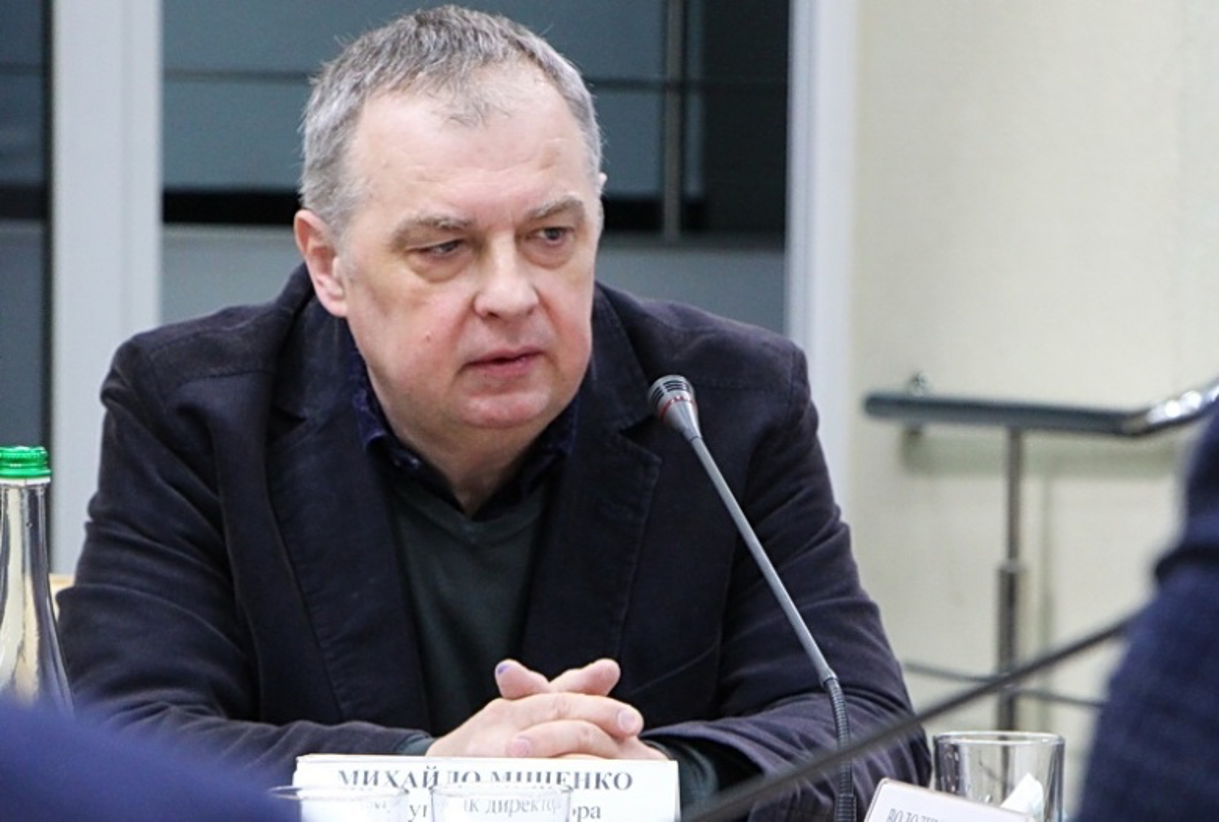
But it should also be noted that the level of trust in all institutions of state power, first of all — the president, increased significantly after the beginning of the war. Even the traditional negative attitude towards officials has become less pronounced.
— Has the attitude towards the EU and NATO countries changed during the military conflict?
— According to the data of the survey I already mentioned, which was conducted in September–October 2022, 67% of respondents trusted NATO. For comparison, in 2020, only 31.5% reported such an attitude.
If in 2020, 43% trusted the European Union, in 2022 — 76%. That is, the attitude towards Western countries is improving. And the attitude towards Russia is deteriorating, which we will talk about further below.
— Judging by the polls, to what degree do the citizens of Ukraine share European values?
— European values are rather a conventional concept. But it may include, for example, the concept of freedom or liberal values. As part of the fall survey, we asked what was more important: freedom or equality. 71% answered that freedom was more important to them than equality. For comparison, in 2020 they made 64%. This indicator is close to the one that was obtained as part of the above-mentioned World Values Survey in the Netherlands — 69% of citizens of that country prefer freedom. In Germany, they made 64%, in Russia, much less (50%).
If you compare freedom and security, Ukrainians tend to choose security: 56% — security, 44% — freedom. But what is characteristic, today the choice in favour of security is significantly less than in 2020. Then 66% of Ukrainians preferred security. That is, even with such a choice, there occurred a shift towards freedom. It is all the more interesting that this happened during the war, when the need for security naturally grows. I will add that the value of security is chosen more often in all European countries. For example, in Germany, 53% prefer security, and 43% prefer freedom. In Russia, security is preferred by 72%.
Also, during the war, the number of opponents of the resumption of the death penalty for the most serious crimes increased significantly. While in 2018, the relative majority (41%) was in favour of resumption of the death penalty, in September-October last year, the relative majority (42%) was against the resumption of the death penalty, and only 29% supported it.
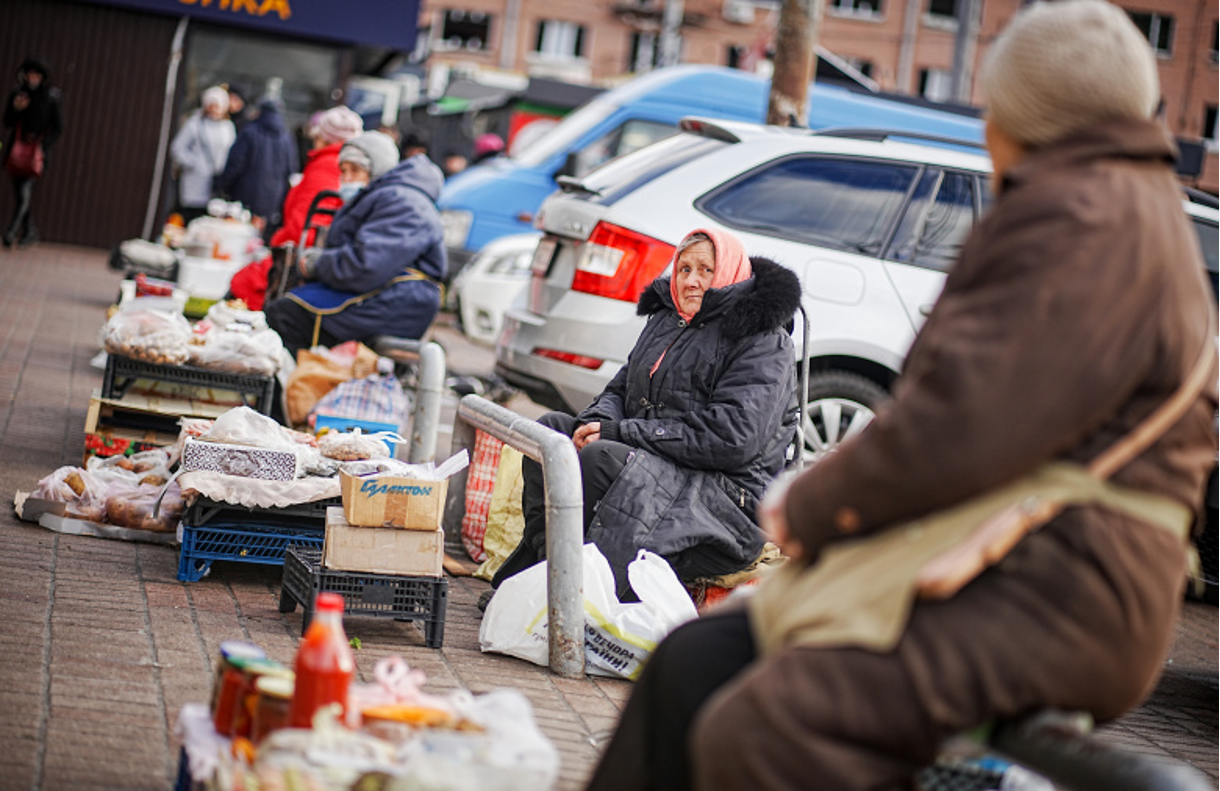
We can also speak about the attitude to the LGBT community. Here I refer to the study of the Kyiv International Institute of Sociology, which was conducted last January. According to its results, 56% agreed that LGBT people should have the right to a civil partnership. 44% agreed that they should have the right to marry, 36% disagreed.
— From a number of Ukrainian and pro-Ukrainian political scientists, I heard regret that the war, which requires the government and society to mobilize resources and unity, may negatively affect democracy, freedom of speech, and freedom of mass media. What do Ukrainians think about this: should freedom of speech be limited in order to achieve the war goals, or not?
— In September-October last year, Razumkov Centre asked the question whether or not citizens would support a political force that advocates restriction of certain civil rights and freedoms, such as the freedom of speech and the freedom of assembly, in the conditions of foreign aggression. Only 23% said they would support it, and 42% said they would not. That is, in general, there is no support for the idea of limiting democratic freedoms even in the conditions of foreign aggression.
On the contrary, there is an increase in support for democracy during the war. If you look at the results of polls from 2010 to 2021, the share of respondents who answered that democracy is the most desirable type of government system ranged from 48 to 56%. And according to the data of the survey conducted last autumn, the share of such people increased to 68%. That is, during the war, the support for democracy grew.
The reason may be that in the perception of Ukrainians, the war between Ukraine and Russia is largely a war in defence of democratic values. Some try to present this war almost as an inter-ethnic conflict, but in fact it is more of a civilisational nature. Russia is seen as a bearer of authoritarian principles, and Ukraine — as the defender of democratic values.
"For the overwhelming majority, victory means the expulsion of Russian troops from the entire territory of Ukraine"
— War usually militarizes society. But in Russia, for example, due to mobilization, the number of citizens supporting the continuation of the war against Ukraine has decreased, people have become more vocal in favour of negotiations. And what is the attitude of Ukrainians? According to the data of the Razumkov Centre Sociological Service survey, in Ukraine, the number of respondents who are ready to defend their country has increased to 71%. How can you explain it?
— The thing is that Ukrainians understand the goals of the war better than Russians: our country was attacked, so we must defend ourselves. We have no other way out. Of course, not 100% of society can do this. Some simply physically cannot fight, even if they want to. Therefore, the indicator of readiness to fight is higher in age groups under 60 years — 77–79%. Among those who are 60 and older, it is lower — 53%.
At the same time, an interesting phenomenon took place in Russia. According to public opinion polls, those who are 60 and older are more likely to take part in the war than younger people, while people of the older age group are almost sure that they will not have to fight.
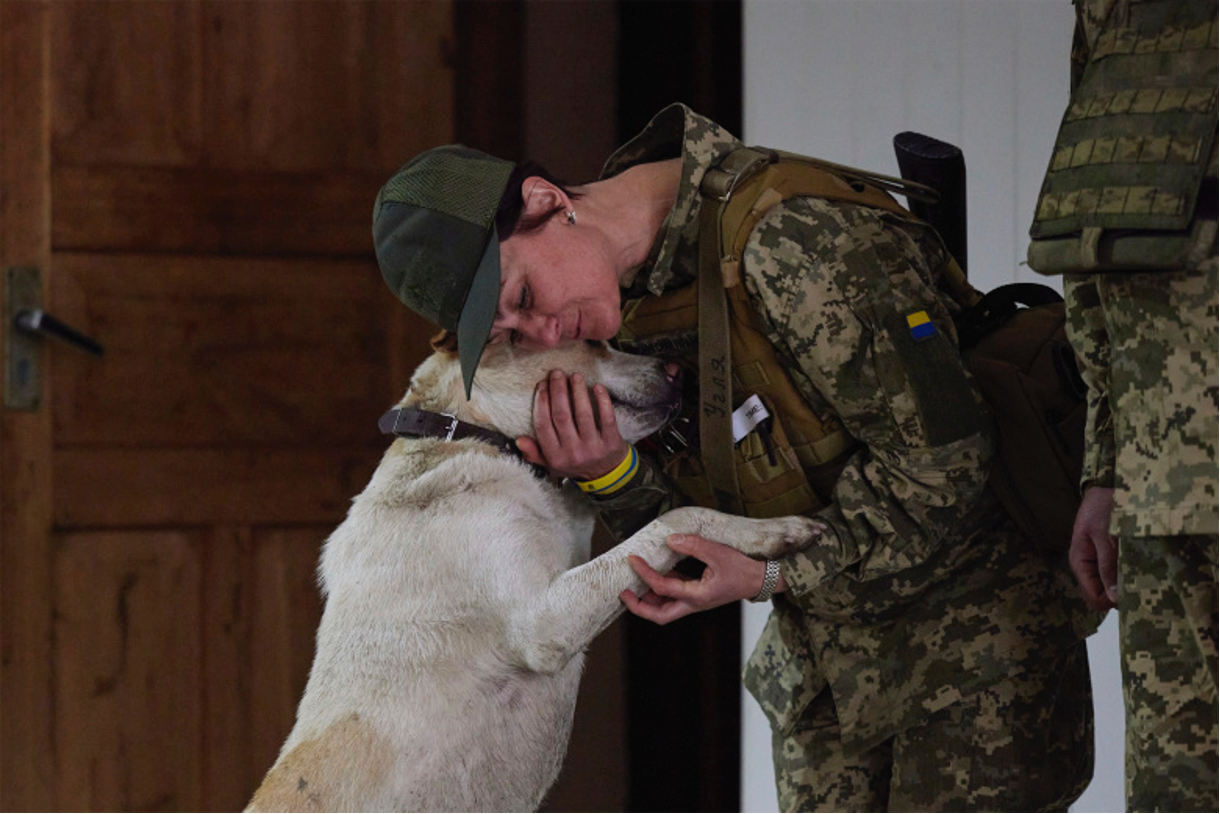
I also want to note that there is no war fatigue in Ukrainian society today. The one who came to fight on someone else's soil is in a worse position. It is not clear why. For him, this fatigue comes much earlier.
— Ukrainians in their mass are ready to fight to the victorious end. But how do they formulate a victory for themselves in the current war?
— We conducted a study together with the Democratic Initiatives Foundation in December 2022. According to it, 93% of Ukrainians believe in the victory of their country in this war. We also asked what this victory meant to them. Among those who believe in victory, 54% answered: expulsion of Russian troops from the entire territory of Ukraine and restoration of borders as of January 2014. Another 22% consider the destruction of the Russian army and the promotion of an uprising within Russia as a victory. For 8%, victory means the expulsion of Russian troops from the entire territory of Ukraine, except for Crimea. For 6% — expulsion of Russian troops behind the line as of February 23, 2022. Only for 3% — the end of the war, even if Russian troops remain where they are now. That is, we see that for the overwhelming majority, victory means the expulsion of Russian troops from the entire territory of Ukraine. In this case, the position of President Volodymyr Zelenskyy expresses that of the overwhelming majority of Ukrainian citizens.
We also have data from the Kyiv International Institute of Sociology on whether citizens are ready for any territorial concessions. The study was conducted in February 2023. Only 9% believe that in order to achieve peace and preserve independence as quickly as possible, Ukraine may give up some of its territories. At the same time, 87% believe that Ukraine should not give up its territories under any circumstances. This is the opinion of residents of all regions: in the West — 89%, in the Centre — 87%, in the South — 86%, in the East — 82%.
— That is, Ukrainians are ready for a long war until complete victory, just to return the territories? As an illustration, I will cite the results of polls by the above-mentioned Kyiv International Institute of Sociology: 90% of Ukrainians believe that it is necessary to strike at the territory of Russia. Only 7% of respondents do not support striking Russia. But strikes on the territory of Russia can prolong the war. Isn't the price too high?
— Striking on the territory of Russia does not mean deployment of troops or seizure of Russian territory. We are talking about retaliatory strikes with long-range weapons. If Russia attacks Ukrainian cities using long-range missiles, Ukraine can retaliate against Russian territory. This is a natural response in this situation. This is almost the same as if we asked: should Ukrainian soldiers shoot Russian soldiers when they are being shot at?
And, as practice shows, such strikes did make an effect after the air base from where Russian strategic bombers took off was attacked. Russia was forced to withdraw part of the planes from there, and the intensity of the strikes subsequently decreased. An example from history can be cited for analogy: when Germany began bombing British cities in 1940, British aviation began bombing German cities in response.
— According to another poll, 67.9% of Ukrainians believe that life in the country will improve and become better in 2023, while in 2021 such optimistic citizens made only 20%. How can you explain this optimism?
— A burst of optimism was expressed already in the first weeks after the start of the full-scale war. In the conditions of the war, society clearly saw points of reference. Before the war, Ukrainians perceived their society as split, they were highly dissatisfied with the authorities. Now society is united, due to the natural need to fight the foreign enemy, it is clear who are friends and who are foes. A clear goal of public action is formulated, where victory is the key idea.
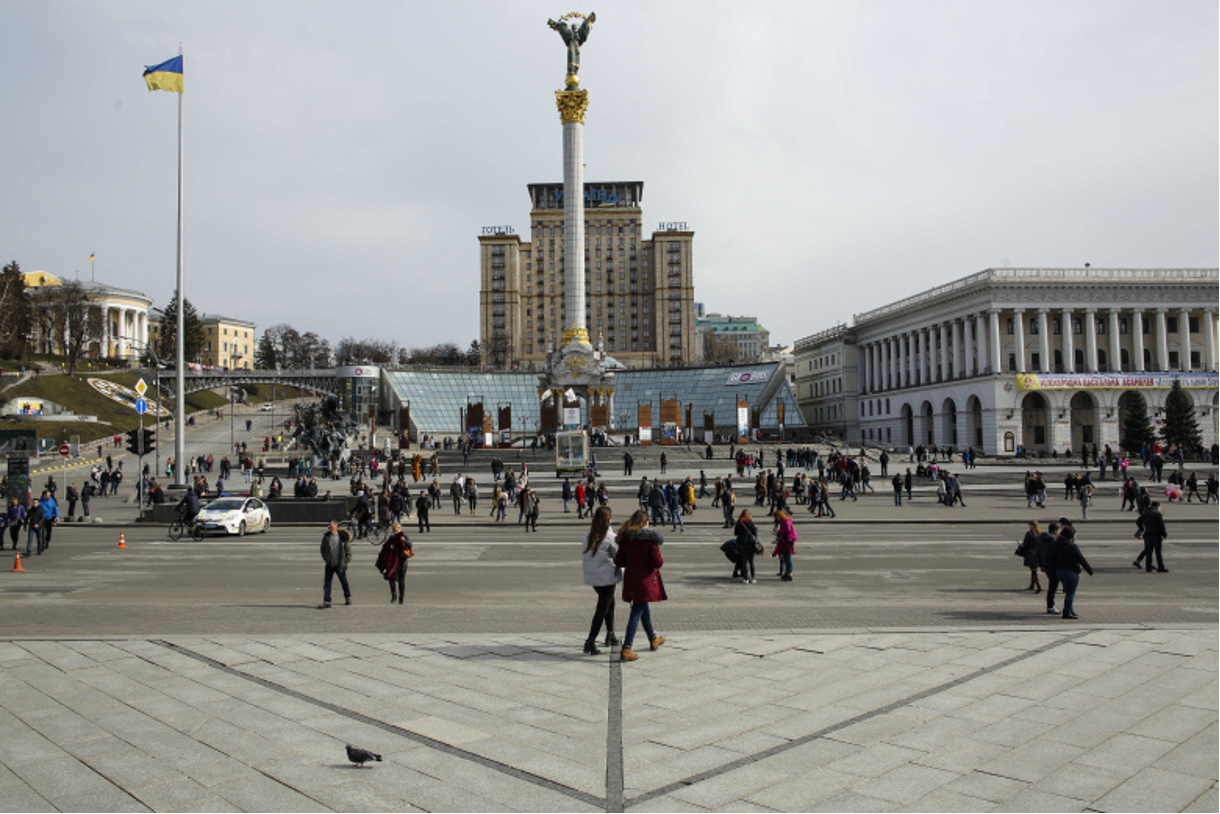
There are data from the Kyiv International Institute of Sociology, which were reported in February 2023. According to the majority (67%) of Ukrainians, Russia is running out of resources: people, weapons, equipment, and money. Only 22% hold the opposite opinion, that Russia still has significant resources that will allow it to wage war for many more years.
In the perception of Ukrainians, Putin's Russia is an anti-civilisational project.
As Pyotr Chaadaev wrote, "sometimes it seems that Russia is destined only to show the whole world how not to live and what not to do." And if so, then Ukrainians are sure that such an anti-civilisational project cannot emerge victorious from the war. The Nazi regime in Germany and the regime of the so-called Democratic Kampuchea, led by Pol Pot, may also be seen as such anti-civilisation projects. Both these projects failed. Therefore, the victory of Putin's Russia contradicts the entire civilisational experience of mankind, Putinism expects the same thing as similar regimes in history.
— You say, "Putin's Russia." How has the attitude towards Putin changed? Was he always an enemy, personification of an anti-civilisation for Ukrainians?
— According to the 2014 data, 71% had a negative opinion of Putin. In 2017, their share reached 79%. In March 2021, they made 82%, and in August 2022 — 96%. Now this indicator has almost nowhere to grow. According to recent studies, the share of those who express a positive attitude towards Putin is close to zero.
It must be said that before 2013, the attitude towards Putin was more positive rather than negative.
In Ukraine, the attitude towards foreign politicians is usually formed by the way they are treated at home. If he is considered to be perceived positively at home, then, most likely, such a politician will be seen in a similar way in Ukraine. But the situation changes when this politician interferes in Ukraine’s internal politics and takes clearly hostile actions towards it. Therefore, when the hybrid war began with the annexation of Crimea, naturally, Ukrainians had every reason to treat Putin negatively.
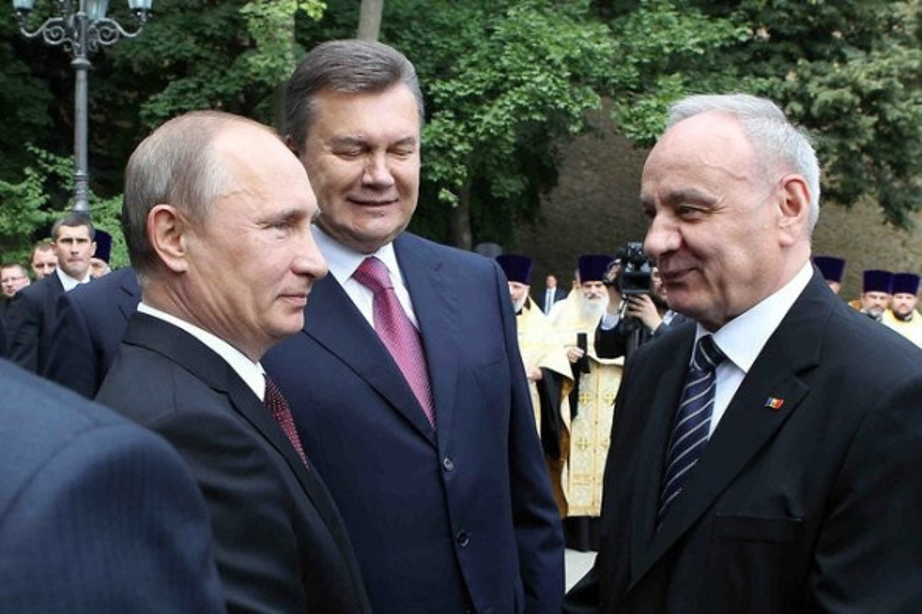
The same applies to Lukashenka. The attitude towards him in Ukraine worsened after the falsification of the elections in Belarus. Ukrainians realised that Lukashenka was a real dictator. After he became an accomplice in Russia's attack on Ukraine, the attitude towards him worsened even more. According to the studies made by Razumkov Centre in February-March this year, 92% of Ukrainians had a negative opinion of Lukashenka.
"When Putin talks about the protection of the Russian population, it causes rejection precisely among the Russian population of Ukraine"
— Is it recorded in any public opinion polls how the attitude towards the Russian language has changed in recent years?
— The attitude towards the Russian language was quite good before the start of the hybrid war, but as a result of it, it began to change significantly and worsened even more after the beginning of the full-scale war. There are data from the Kyiv International Institute of Sociology: in 1998, 2019, and 2023, respondents were asked whether Russian should be taught in Ukrainian schools. In 2019, only 8% answered that it is not worth studying Russian in schools at all. In 1998, this answer was absent from the questionnaires, most likely because the researchers believed that no one would choose it anyway. And in February 2023, the share of those who think so has grown to 52%.
Although 42% support study of the Russian language in schools, they at the same time believe that the time spent on studying the Russian language should be reduced. While in 1998, 46% believed that the lessons of Russian should be the same as of Ukrainian, in 2019 this indicator fell to 30%, and now only 3% think so. The share of those who believe that the Russian language should be studied less than Ukrainian, but more than other foreign languages, was 32% in 1998, 26% in 2019, and just 6% in 2023. Now 33% believe that the Russian language should be studied to the same extent or less than other foreign languages. In 2019, there were 25% of them, and in 1998 — 17%.
This is the effect of the Russian aggression. Today, the Russian language for Ukrainians is the language in which the telephone conversations of the Russian military are tapped, with almost half of the words obscene.
Before the war, we also asked with which cultural tradition the respondents associate themselves. The last time we did it in 2021. We can compare it with the answers in 2006. If you look at ethnic Russians in Ukraine, in 2006, only 21% of them identified themselves with the Ukrainian cultural tradition. According to the data of 2021, this indicator grew to 49%. In 2006, 35% of ethnic Russians identified themselves with the Russian cultural tradition, and in 2021 — only 18%. Probably, after the start of a full-scale war, this trend continues.
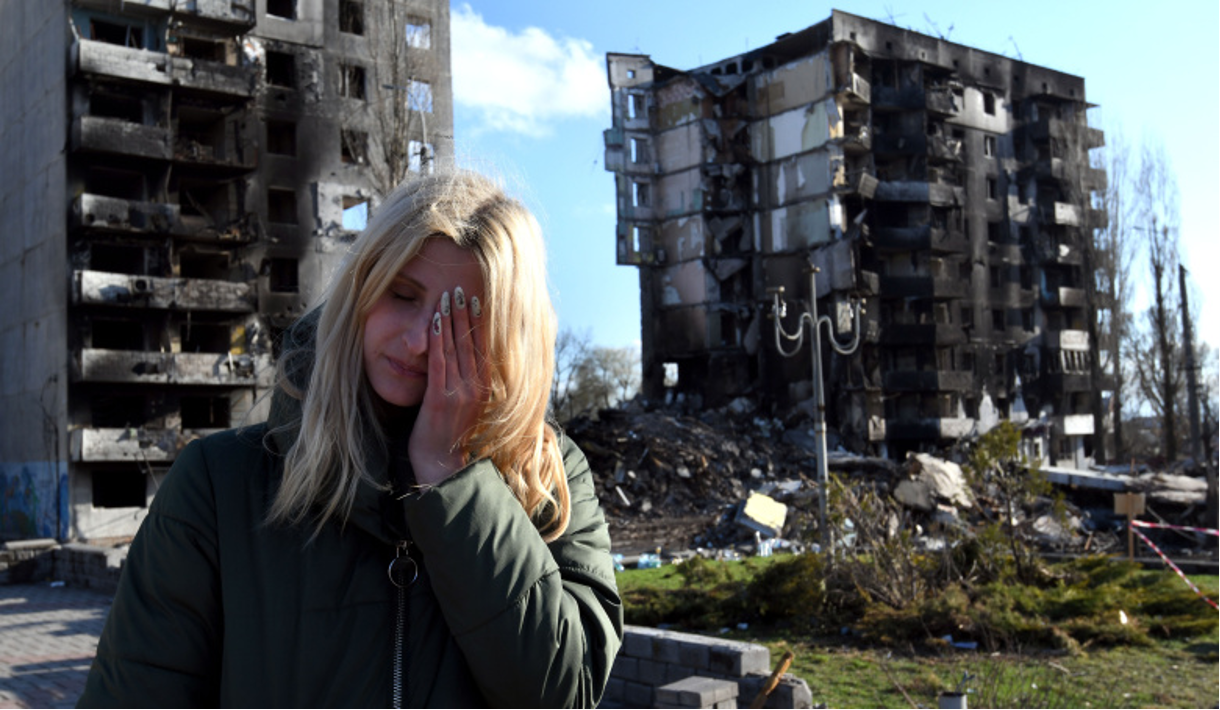
We see that the distancing from Russia takes place not only among the citizens of Ukraine as a whole, but also among its citizens who are ethnic Russians. That is, when Putin talks about the protection of the Russian population, we see that it causes rejection precisely among the Russian population of Ukraine.
— In what language are polls conducted in Ukraine today?
— I will give the data of our latest research (February-March 2023). 82% of interviews were conducted in Ukrainian and 18% in Russian. According to this study, 21% of respondents answered that they more often communicate in Russian at home, 71% in Ukrainian, and 3% in another language.
— How has the attitude of Ukrainians to the common past with Russians changed? It is clear that it is certainly negative in its mass. But, maybe there are still some symbols, events, figures, on which the shadow of negativity does not fall because of the war?
— Judging by polls, there is a pronounced nostalgia for Soviet times in Russia. It is not the case in Ukraine. According to the survey conducted by Razumkov Centre in September-October 2022, only 3% answered that they wished restoration of the Soviet Union. Another 11% answered that they wished it, but believed that it is impossible. And 87% said that they would not like any restoration of the Soviet Union. In 2021, 69% did not want restoration of the USSR, and in 2016, even fewer — 65%.
Compared to 2021, the number of those wishing to return to the USSR decreased most noticeably in the older age group (60 and older). While in 2021, 18% of older people answered that they would like to restore the USSR, then in 2022 — only 3%. Now the share of those who believe that they would like it, but think it is unrealistic, has decreased in the older age group from 32 to 22%. And the share of those who did not want it increased from 51 to 74.5%. Among the young people, both in 2021 and 2022, the share of those who did not wish to return to the USSR was almost equally high and now amounts to 95%.
— What can unite Ukrainians and Russians? Most often, they refer to such past events as the victory in the Second World War.
For Ukrainians, this victory is interpreted as follows. It was achieved, firstly, in cooperation with the Western allies, and secondly, it is the merit of all the nations that were part of the Soviet Union. But Putin has largely changed this interpretation. Back in 2010, he said: "Now about our relations with Ukraine. You may disagree by saying that if we were divided, we would not have won the war. We would have won anyway, because we are a nation of winners... If we look at the statistics of World War II, it turns out that the RSFSR suffered the greatest losses in the Second World War — more than 70% of losses. This means that the war has been won, I don't want to offend anyone, mainly at the expense of Russia's human and industrial resources. This is a historical fact." It is an attempt to privatize the victory on the part of Putin.
For example, my father is a participant in the Great Patriotic War. It turns out, according to Putin, that his participation in this war was optional, they could do without him? With his statement, Putin crosses out any unity in the common victory. Of course, such an interpretation had an effect on Ukrainians. So, it is not surprising that after such statements, many Ukrainians call Putin's attitude to the victory in World War II "victorious hysteria".
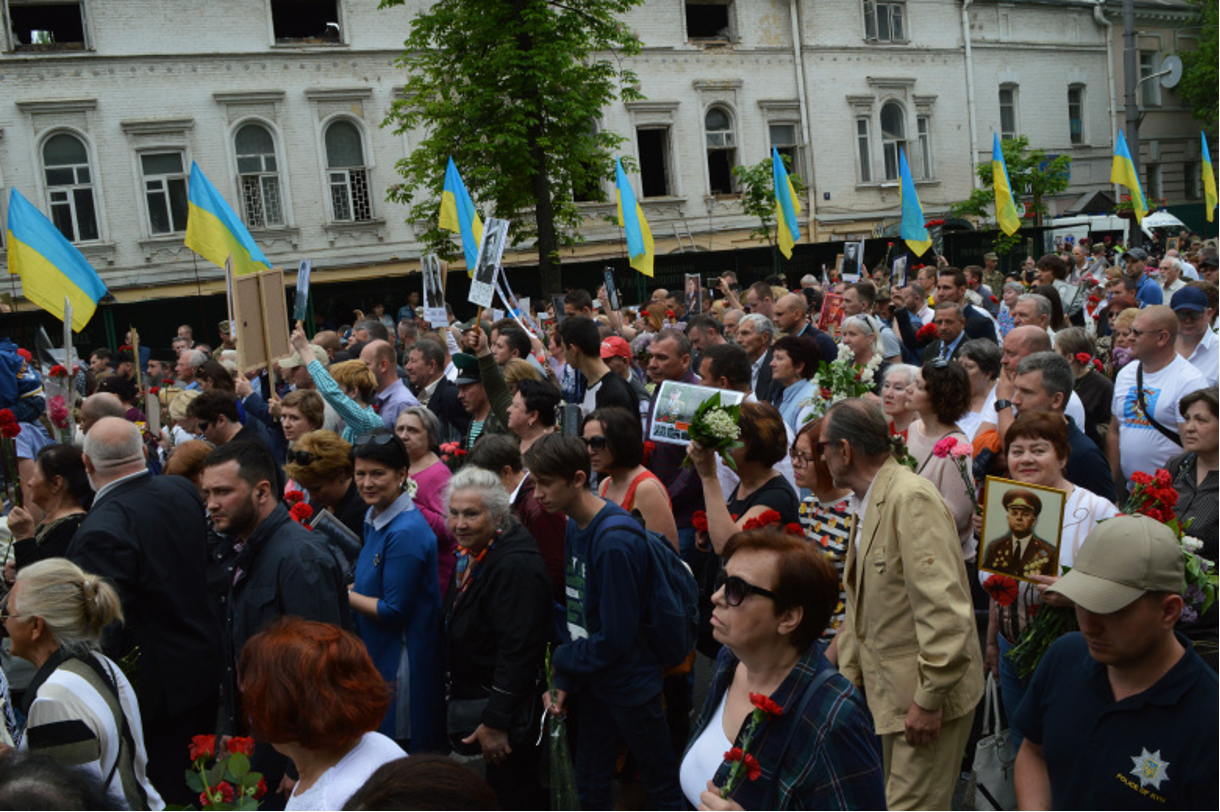
Moreover, Putin changed the interpretation of victory even compared to the one of the Soviet times. Then the victory meant a guarantee of peace, "the main thing was that there was no war" — this was one of the narratives of the Khrushchev, Brezhnev, and Gorbachev regimes. For Putin, the cult of Victory is the basis for military revenge. His cult of victory is very reminiscent of the cult of war that existed in Nazi Germany. In fact, he does not continue the tradition of the victors of Nazi Germany, but renews the tradition of the attitude to war that existed under Nazism. Therefore, in the eyes of the world community Russia is now more associated with Nazi Germany than with the allies who defeated it.
Hence, we are ever less willing to celebrate the Victory Day on May 9. The Kyiv International Institute of Sociology regularly conducts research in which it asks which holiday is the most important and beloved for citizens of Ukraine. In 2013, the Victory Day was considered such a holiday by 40% of respondents, but in 2016, that is, after the beginning of the hybrid war in the east of Ukraine, their share fell to 35%, in 2018 — to 31%, in 2021 — to 30%, in February 2023 — to 13%. Putin and his politics are cutting all ties between Ukraine and Russia, including historical ones.
I can also cite the results of the Razumkov Centre surveys in 2017. Respondents were asked what Russia is associated with. Even then, it was most often associated by Ukrainians with "aggression" (66%), "dictatorship" (60%) and "cruelty" (57%). This once again confirms that Russia in the emotional perception of Ukrainians has become something similar to Nazi Germany.
"81% of the polled Ukrainians expressed a negative attitude towards the residents of Russia”
— Ukrainians see Russia in a negative light. But do they somehow separate the citizens of Russia and the Kremlin? Today, citizens of Russia and the Kremlin are often identified in pro-Ukrainian radical journalism. Is Ukrainian society of a similar opinion?
— In August 2022, Razumkov Centre and the Democratic Initiatives Foundation conducted a joint study. They asked: "Who, in your opinion, bears the main responsibility for the war in Ukraine?" There were several options. Most often, the respondents said: the Russian leadership (86%) and the Russian citizens (42.5%). We see that many Ukrainians put the blame on the citizens of Russia, and not only on its leadership.
According to a study conducted by the "Rating" sociological group in August 2022, 81% of the polled Ukrainians expressed a negative (the word "cold" was used in the questionnaire) attitude towards the residents of Russia. Back in April 2022, they made 69%, in April 2021 — 41%, in 2018 — 23%. Only 3% expressed a positive (“warm”) attitude in August 2022, and 14% expressed a neutral attitude.
The attitude towards Belarusians has also changed. In August 2022, 52% treated them "coldly", in April 2022 they made 33%, in April 2021 — only 4%. According to the results of the Razumkov Centre survey conducted in February-March 2023, 81% of respondents expressed a negative attitude towards Belarus (I emphasize, not towards Belarusians).
Here it is worth noting that the formation of attitudes towards one or another community of people occurs under the influence of the behaviour of its dominant group, that is, those who are the most active, noticeable, even if they do not make up the majority. Today in Russia, supporters of Putin's politics and war are such a group, it can be said that they belong to the fascist type of personality. It is hard to say what their share is among the Russian citizens. It is quite difficult to make an adequate representation based on the results of sociological surveys conducted in Russia — obtaining reliable results from public opinion polls in a situation where condemnation of the war and "defamation of the army and other military formations" is punishable by law is hardly possible.
— Do Ukrainians report family and friendly ties with Russia in public opinion polls?
— According to the Razumkov Centre surveys conducted back in 2017, 51% of Ukrainian citizens answered that they had relatives, friends or acquaintances who lived in Russia.
As for communication. According to the results of an online survey conducted in mid-April 2022 by the Gradus research company, 48% of respondents answered that they had at least one relative in Russia. 59% of those who had relatives in Russia communicated with them about the war via messengers or by phone in the first weeks after its start. 54% of those who communicated with relatives in Russia said that the communication that took place after the start of a full-scale war had no effect on the relatives' belief in the Russian propaganda. 8% answered that their relatives began to believe it even more, and 40% said that their relatives began to believe Russian propaganda less. But by April 2022, only 46% of those who communicated with relatives in the first weeks of the war continued this communication. Most people interrupted it.
— How has the attitude of Ukrainian citizens to Russian-speaking citizens of Ukraine, ethnic Russians, residents of the "DPR-LPR" changed?
— According to studies conducted by the "Rating" sociological service in August 2022, 42% expressed a neutral attitude towards Russians living in Ukraine, positive ("warm") — 22%, negative ("cold") — 29%. 51% of respondents expressed a "warm" attitude towards Russian-speaking Ukrainians, 33% neutral, and 14% "cold". Moreover, the share of those who have a positive attitude towards Russian-speaking Ukrainians rose from 37% in August 2021 to 51% in August 2022. That is, it became much better than before the war.
The attitude towards the citizens of occupied Crimea has worsened. In July 2020 it was termed "warm" by 52%, neutral by 27%, and "cold" by 16%, in August 2022 — by 22, 45, and 23%, respectively. That is, the share of those who had a positive attitude decreased from 52 to 22%. And the share of those who reported a negative attitude increased from 16 to 23%.
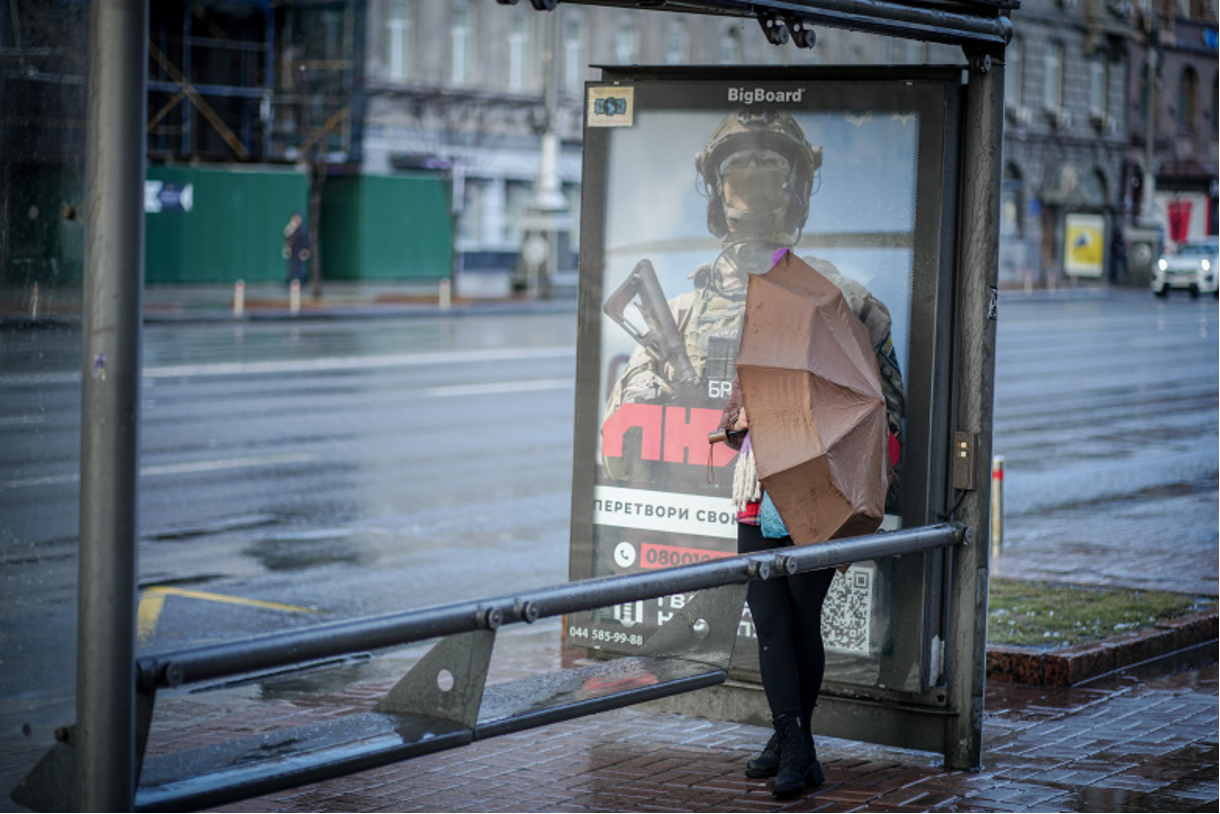
Now about the residents of the so-called "DPR" and "LPR". According to the "Rating" sociological service, in July 2020, 50% reported a "warm" attitude to the residents of the "DPR" and "LPR"; in August 2022 — only 14%. From 2020 to 2022, the share of those with a "cold" attitude increased from 18 to 47%. The share of those who had a neutral attitude increased from 26 to 32%. Naturally, the participation (voluntary or forced) of some residents of the "DPR" and "LPR" in military operations against the Ukrainian army led to the deterioration of the attitude of Ukrainians towards them.
— Let's sum up. What important changes took place during the hostilities?
— Back in July-August 2021, when Putin's article "On the historical unity of Russians and Ukrainians" was published, we studied the attitude of Ukrainians to the theses that were presented in it. Then the overwhelming majority of Ukrainians reacted negatively to Putin's statements that "there was and could not be any historical basis for the idea that the Ukrainian people were separate from the Russians" and that "the territory of modern Ukraine was largely created at the expense of the territories of historical Russia."
To a large extent, this war helped Ukrainians realise themselves as a nation. According to the Razumkov Centre surveys, while in 2021, 40% of Ukrainians, answering the question of what Ukraine will be like in the future, said that it would be a highly developed, democratic and influential European country, in September-October 2022, they made 65%.
Importantly, during the war in Ukraine, a new dominant type of personality emerged — a person with strongly expressed sociocentric values.
This can be seen in the example of volunteer soldiers, volunteers who help fighters at the front. This dominant group, apparently, will remain similarly dominant even after the war, which will contribute to the development of society and the political nation. Exactly this optimism is expressed by Ukrainian society.
Source:




